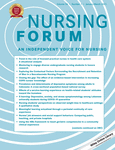Life is a highway: Driver's license acquisition and social determinants for youth in foster care and their non-foster care peers
Abstract
Background
Data regarding the connection between driver licensure and social determinants for youth could provide insight into the impact of driver license acquisition. These relationships are important for youth overall and particularly for foster youth given that adolescents in foster care obtain driver's licenses less often than their non-foster care peers. This integrative review explores the association between driver licensure and social determinants.
Methods
Whittemore and Knafl guidelines were used to conduct the integrative review. The articles were identified in collaboration with an expert in library science and public health. Results were organized by the Healthy People 2030 (HP 2030) Social Determinants of Health (SDOH) model.
Results
Six studies were included. Social and community context included social support structures helping youth get driver's licenses. Economics, including income and education, influenced license acquisition. Driver license acquisition was associated with improved well-being, security, and mental health.
Conclusion
While fewer of those living in urban, walkable neighborhoods with access to public transportation were licensed, results from other studies suggest that car access is associated with psychological well-being. Further, licensure is disproportionately lower for populations historically marginalized from equal housing, education, and employment opportunities. Licensure plays a role in well-being.
CONFLICT OF INTERESTS
The authors declare that there are no conflict of interests.




